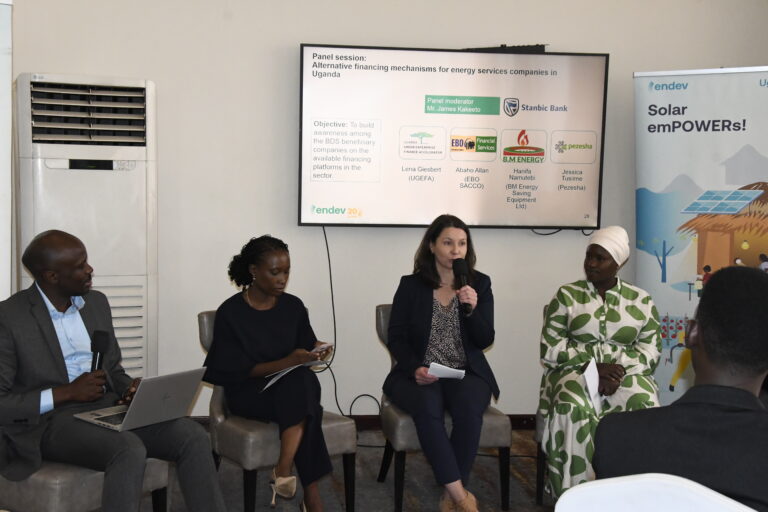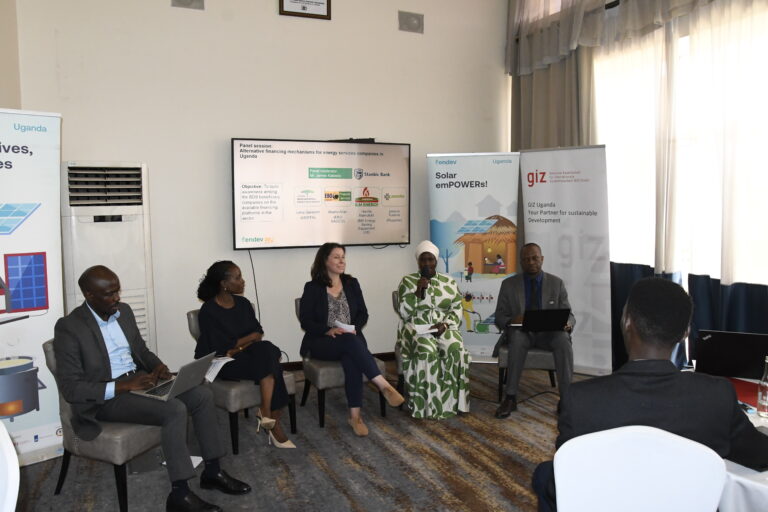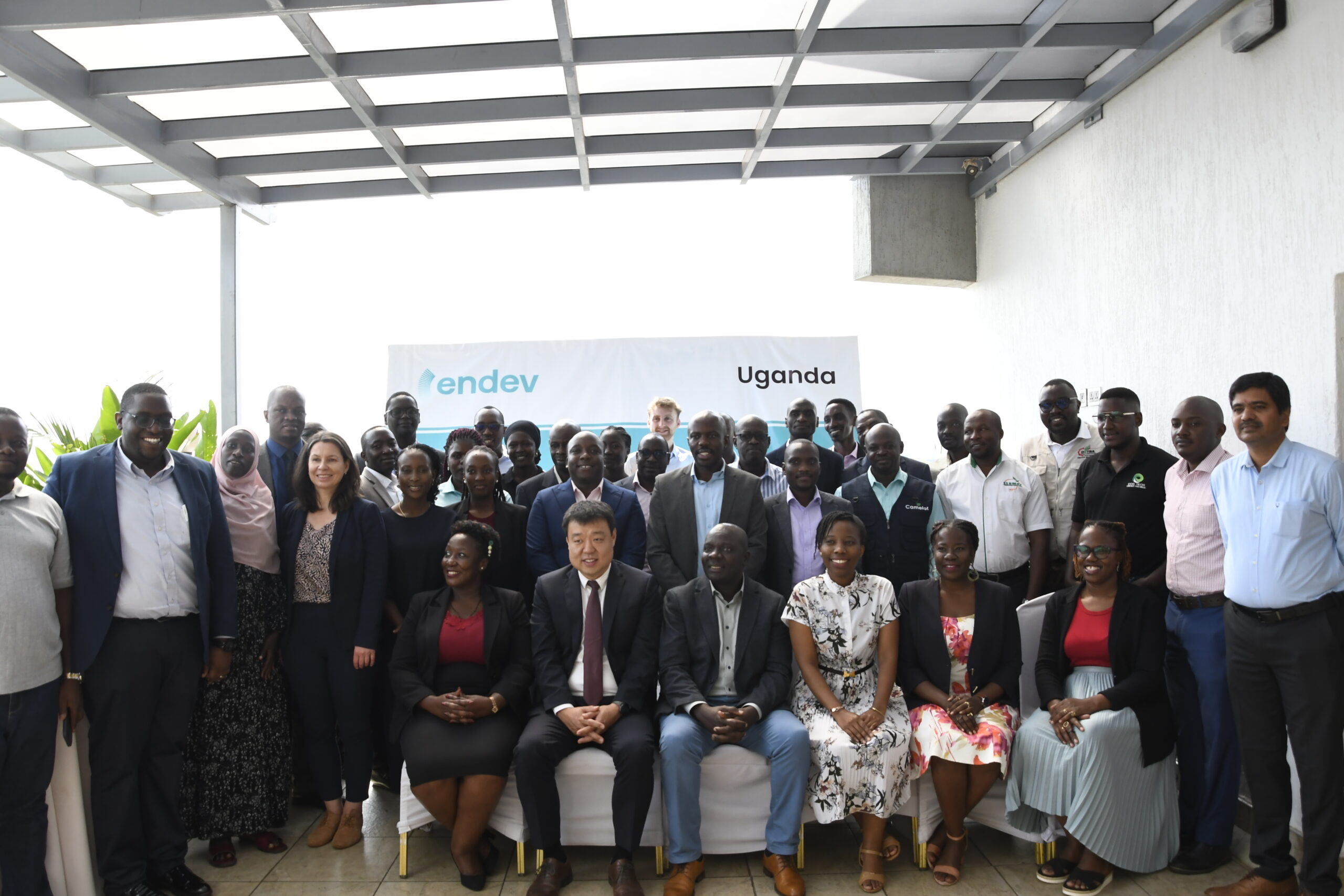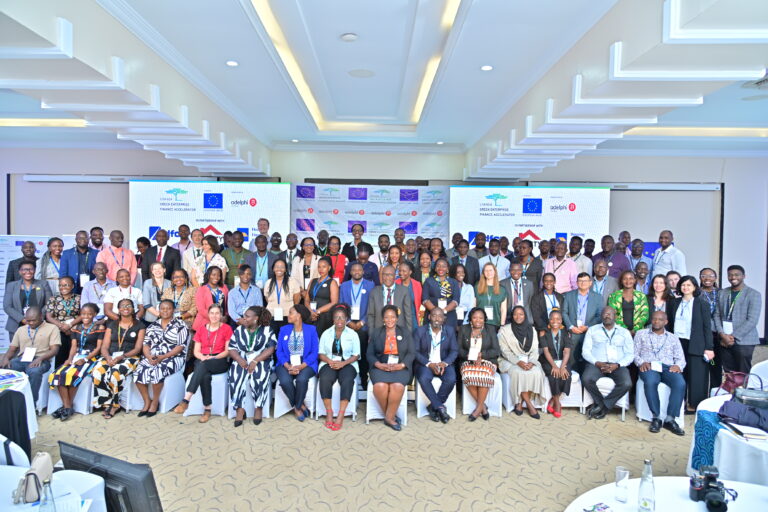UGEFA contributes to GIZ EnDev’s Investment Acceleration and Climate Finance Awareness Workshop
On 15 October 2025, GIZ Energising Development (EnDev) Uganda, in partnership with the Ministry of Energy and Mineral Development, hosted the Investment Acceleration and Climate Finance Awareness Workshop at the Golden Tulip in Kampala. The event brought together financiers, renewable energy enterprises, business accelerators, government agencies, and development partners to explore ways of bridging the finance gap for SMEs participating in EnDev’s Business Development Support (BDS) 3.0 programme.
Representing the Uganda Green Enterprise Finance Accelerator (UGEFA), Dr. Lena Giesbert joined a panel discussion on Alternative Financing Mechanisms for Energy Service Companies in Uganda. The panel, moderated by James Kakeeto from Stanbic Bank, brought together insights from commercial banks, digital lenders, and sector practitioners to examine what makes SMEs ready for investment and how they can navigate the current financing landscape.
UGEFA Continues to Strengthen Green Investment
Lena Giesbert presented UGEFA’s Phase II programmes, the Catalyser (pre-finance) and the Accelerator (post-finance), which provide practical, tool-based enterprise support aligning business operations and governance structures with lender expectations. She explained that UGEFA assists green and “go-green” SMEs to:
- Develop sound business and financial plans with clear repayment capacity;
- Improve operational readiness through project roadmaps, cash flow management and risk mitigation;
- Strengthen governance through role clarity, quality systems and sustainable impact monitoring.


The Future of Green Investments
Looking ahead, Lena noted that banks are increasingly prioritising investments in solar systems and equipment, clean cooking technologies, briquette production, institutional and farm-scale biogas, and agri-energy applications such as solar irrigation and cold chain systems. UGEFA supports SMEs to seize these opportunities by preparing credible lender files, aligning financial projections with realistic loan terms, and facilitating matchmaking with its seven partner banks. Through its blended grant de-risking instruments, UGEFA helps share risk with lenders, reducing borrowing costs and enabling more competitive pricing, as well as improving access to smaller loan sizes.
When discussing policy bottlenecks, Lena identified challenges such as inconsistent implementation, complex licensing, unclear fiscal incentives, and high costs of capital. She outlined how UGEFA’s hands-on coaching, standardised documentation, capacity building for partner financial institutions, and de-risking mechanisms help enterprises to navigate these barriers.
Strengthening Networks in Uganda
The workshop featured SME pitch sessions, investor spotlights, and networking opportunities, creating valuable space for targeted dialogue between entrepreneurs and financiers. These interactions strengthened connections across Uganda’s green finance ecosystem, marking an important step towards accelerating scalable and sustainable energy solutions for households and businesses throughout the country. The interactive nature of the workshop further enabled targeted dialogues between SMEs and financiers, strengthening connections and collaboration for scalable green energy and impact in Uganda.

